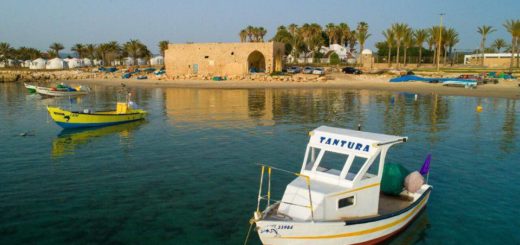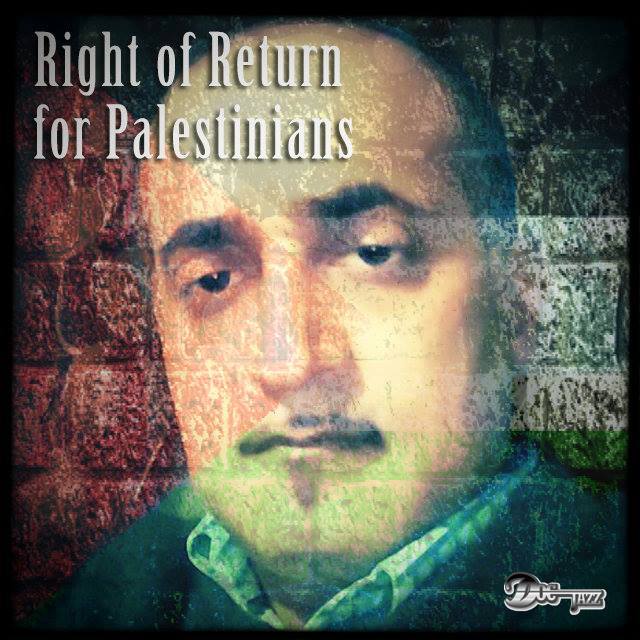Doc Jazz: ‘The heart of our cause is the Right to Return’ – interview with Oh My Gaza
 The wonderfully active and comprehensive blog ‘Oh My Gaza‘ has done an interview with Doc Jazz about the Musical Intifada. Also discussed are Zionism in the Netherlands, and thoughts about global activism for Palestinian rights. It is republished here, but the original can be read at Oh My Gaza here.
The wonderfully active and comprehensive blog ‘Oh My Gaza‘ has done an interview with Doc Jazz about the Musical Intifada. Also discussed are Zionism in the Netherlands, and thoughts about global activism for Palestinian rights. It is republished here, but the original can be read at Oh My Gaza here.
—
I am honored to introduce you to Doc Jazz, a proud Palestinian who is reshaping how to get awareness and solidarity out into the world in regard to the cause and struggle of Palestine.
What inspired you to become a surgeon?
I come from a family with a lot of medical doctors; my own mother is a general practitioner. I am sure that somehow she inspired me to pursue a medical career, although I knew from early on that I wanted to be in surgery more than in any other medical profession. And after having been a surgeon for over ten years now, I still have never regretted it one moment. This is what I feel best doing.
How did being born and raised in the Netherlands effect your view
of Palestine?
I think that since the Netherlands is a country with an extremely pro-‘Israel’ population, growing up there has made me more determined to look for ways to promote the Palestinian cause. When I was a young child, there were barely any pro-Palestinian voices in the country. But I was raised to be proud of my Palestinian heritage, and stood my ground in defending who we are, and what our aspirations are.
When you are a migrant, there is that eternal question: “Where are you from?” Answering that you are Palestinian is never without direct consequences in the Netherlands. It affects your relationships with friends at school, with teachers at school and at university, and even your position in your working environment. In the Netherlands people like to believe that they are fair and open-minded, but when it comes to Palestinians – or even Muslims in general nowadays – this is nothing but a wishful fantasy that exists in their own thoughts.
As for my view of Palestine, maybe these experiences made me more determined to dig deeply into the history of our cause, and to make sure I know everything about it that I need to know. I even ended up being the media spokesperson for the board of the Palestinian Community in the Netherlands (PGN) for nearly 5 years. I guess I took the pro-Israeli brainwash of the majority of the Dutch people as a challenge.
What is Musical Intifada about?
When the struggle against Apartheid was coming close to reaching its climax in the eighties, the role of music in propagating that struggle for equal rights was tremendous. Even artists that barely had any political interests wanted to join in; it was ‘in’, it was ‘hip’, to have a song against racism.

In the end of the year 2000, I wrote my first truly political song, ‘Intifada’, and put it online. I set up a website and published it there, and shared it with the online community ‘Ramallah Online’, which still exists by the way (http://wwww.ramallahonline.com). It received such positive responses there, and also through my website, which I named the ‘Musical Intifada’, that I decided to focus on making songs for the struggle. And when I did that, I had a dream in my mind that some day, the world will sing for Palestine the way they did for South Africa.
Well, we still aren’t there. But perhaps it just takes more perseverance, more determination, more time. This is still where I want things to go, and nowadays I am far from the only one. You all know the tremendous successes of artists like Lowkey, OneWorld, Shadia Mansour, D.A.M. and many others. There is definitely something going on, and we should just go on and on until it happens. These efforts are the Musical Intifada.
How do you think your music impacts the cause for Palestine?
The straightforward most honest answer is: it doesn’t! Not yet, at least. If you ask me whether it has the potential to make difference however, then yes I believe it does. For that to happen though, I need a bigger audience, especially in the Western World. The vast majority of my lyrics are in English, so it’s really made to reach out to all corners of the globe. At the moment, about 65 – 70 % of my fans are Palestinian. This is of course a wonderful thing, but they are not the ones who need to be convinced of the justness of the Palestinian struggle.
I like to believe that the combination of my lyrics, rhythms and melodies has the potential to draw people in who have Western and other backgrounds. Only one week ago, my music received a ‘Music Blog Award’ from Clickitticket.com, a mainstream American website. I think this is a positive development. It shows that mainstream minds can be opened by my music.
How optimistic are you about freedom and justice for Palestine?
It depends on whether you mean in the long run, or in the short term. I think there are many things to worry about in the near future. The articles I wrote on my website give you an idea of where my thoughts are on those subjects. But in the long run, I believe the Zionist project they call ‘Israel’ is doomed to fail. The lunacy of racism will be its downfall. Not only do I believe that racism is evil, I also happen to believe that it is an unsustainable ideology. And since racism is at the very core of the foundations of the Zionist state, I believe they have planted the seed of self-destruction in its very heart when they founded it.
What steps do you think need to be taken in order for Palestine to
be free?
I believe that one of the most important things that we must do as Palestinians, is to hold on to our cause. Justice is our strongest weapon, and we have it entirely on our side. There is no case to be made for ‘Israel’ outside of the ‘logic’ of power. I will never recognize that colonialist state, because I believe racism deserves no recognition. What we need to do as Palestinians is to protect our cause, and the heart of our cause is our Right to Return. If we succeed in passing this determination on to the next generations, we have done the most important thing we can do for Palestine, and for the Palestinian cause.

We have to remain clear about this towards all the nations of the world, and we should never forget that the world already recognizes this Right of Return, even if the international community is failing to take the steps that are necessary to put it into practice. We must therefore continue our support for the calls of PACBI for a sustained economic, cultural and academic boycott of ‘Israel’.
As a part of this strategy, we must also put a lot of energy in working against normalization. Normalization has the dangerous potential to take all the energy out of BDS (Boycott, Divestment and Sanctions) activities. We must continue to call for the dismantlement of the Zionist state, and the resurrection of a one-state Palestine that is a nation for all of its people regardless of religion or ‘race’. These are the steps, and we must hang on to them with classical Palestinian determination.
Any final thoughts you would like to share with us today?
I would like to extend my hand in solidarity, gratitude and admiration to all those who are working for Palestinian rights worldwide. There are so many more who feel the same as they do, and who simply lack the courage to speak out. The ones who do have that courage can play an important role in activating these ‘silent sympathizers’. Imagine if all those would speak out loud – the noise of their rejection of Israeli Apartheid would be deafening. So give them a hand, pass them my songs to encourage them. That’s what I made them for!




Recent Comments